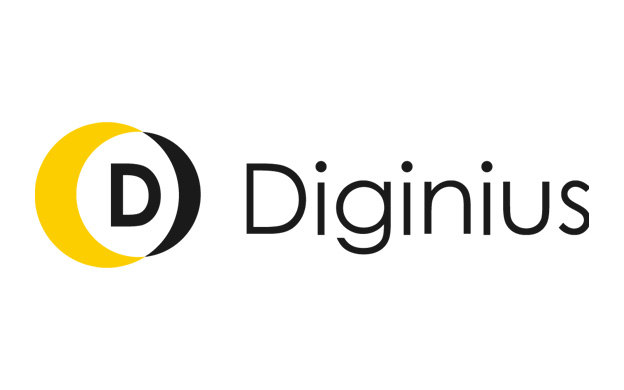Winner profile

“It’s been a super long journey for us,” says Juliana Burke, co-founder and Chief Operating Officer of Diginius. “Most people who understand the industry are amazed about the company we’ve become, given the number of people we work with and the amount of money invested— it’s really small. So it’s just a few people working hard for years to build it.”
Diginius was founded in 2011 by CEO Nate Burke and Juliana Burke. The London-based company’s software integrates with a range of advertising networks and sophisticated tracking tools. Specialising in pay-per-click advertising (PPC), the company caters to a diverse clientele spanning multiple industries—it now works with 700 marketing agencies in 56 countries. Diginius’ rapid growth under Juliana and Nate’s leadership means that it is this year’s Women in Leadership Winner. The category highlights the remarkable achievements of companies with a founding team that is at least half women or that are led by a woman CEO.
“It took us until about a month ago to come up with even a name for our platform,” says Nate Burke. “People try to put you in a box like, is it a reporting platform? Is it a bidding platform? Is it analytics? We finally came up with ‘digital performance platform’. So our goal is to help companies grow their sales and have their growth and high growth. And so when you do that, you need a unified platform of all your data, not just a good part of it.”
Diginius’ story starts in the 90s when Nate started and ran an e-commerce company in the US after completing a Computer Science degree and while in an MBA program. Running an e-commerce company helped provide insights into the digital layer needed to run a business online. Like Nate, Juliana is an MBA with long experience in the sector: “We’ve been working together ever since we got married. So 25 years working together. It works, it’s crazy. It has challenges, has huge advantages as well to be married and work together.”
The company has grown without taking venture capital, an approach that has proven challenging but rewarding. “I would have loved to take some good US VC money at the rates that they used to give it,” says Nate. “It was never the right fit. We’d meet with them and they’re like, we don’t like your market. We don’t think you can do it. Or they would say things like, you’ve got to earn back all your equity. And we were like, no, we’re not desperate anymore.” Over the years, the company has raised nearly £2m from a range of angel investors and from brand consultancy Champions UK. Given the development costs for complex software products, it is remarkable that Diginius has achieved such high-growth with so little external investment.
An inflexion point for Diginius was when Google approached it. “It was six or seven years ago,” explains Nate. “They wanted to work on a strategic partnership with us, and we did that for a couple of years. However, it didn’t work out. So, at the same time, we had a number of our clients want us to go into the Microsoft advertising space more because the performance was so much better than Google. And we approached Microsoft and developed a partnership with them. We’ve done a lot of work with them. We won European Partner of the Year and then Global Partner of the Year. We’re their largest channel partner globally now. So that’s obviously made a big difference in our growth.”
In conversation with Juliana and Nate, it becomes evident that the team behind Diginius plays a pivotal role in the company’s growth. Discussing key milestones, Juliana and Nate highlight an engineer’s 10-year anniversary alongside landmark achievements like reaching breakeven, sponsoring the US Search Awards, and having Microsoft host a client meeting for Diginius at its Fifth Avenue office in New York.
Reflecting on the journey, Juliana says, “The best thing—and the hardest thing—about the company, the way I see it, is the people. It’s the most rewarding and amazing. So for me to see the people who were there at the beginning, those who were paid nothing, they’re still there. And now we can pay them, which is super rewarding.”
Juliana prides herself on fostering a transparent and collaborative work environment. Despite the challenges of day-to-day operations at a fastgrowing company, she values communication. She mentioned the struggles of balancing work and communication, underlining the significance she places on engaging with her team and the leadership. “At one stage, I made myself go to talk to every person once in a quarter. And it sounds easy, but it’s super hard,” says Juliana. “It becomes a bigger job the bigger the team is and harder when you have an international team. We have people in Nicaragua, people in Bulgaria, people in Ukraine, people in Serbia, Hungary, Spain, and the US. Every single country is slightly different. The culture is different. The holidays are different. And the way people communicate is different.”
For Nate, engaging with the developers on new challenges is among the most rewarding aspects of the job. “You got these deep, complex issues. We just had to scale up our servers again. And you’re trying to figure out where you can handle it more efficiently. So, yeah, those kinds of tough problems are fun to work on.”
The team-centric culture that Juliana and Nate have created and the operational efficiency it drives is a successful strategy. The approach has not only benefited the work environment but has significantly contributed to the growing reputation and capabilities of Diginius.